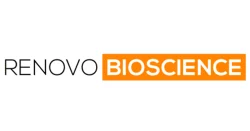REGENERATIVE RESEARCH GROUP
RRG EXM: Placental Tissue Extracellular Matrix Allograft
RRG EXM is a unique pre-mixed tissue matrix allograft processed from human placental tissue. This tissue matrix contains, collagens, growth factors and other key biologic components.
RRG EXO: Vesicle Products w/ Growth Factors
Exosomes are small, membrane-bound vesicles, typically 30-150 nanometers in diameter, that are secreted by various types of cells in the body. They play a crucial role in cell-to-cell communication by transporting molecular cargo, such as proteins, lipids, and RNA, between cells.
How Exosomes Work:
1. Formation: Exosomes are formed inside cells within structures called multivesicular bodies (MVBs). These MVBs are formed when parts of the cell membrane invaginate (fold inward) to create intraluminal vesicles (ILVs). Eventually, these MVBs either fuse with lysosomes for degradation or fuse with the cell membrane to release the ILVs as exosomes into the extracellular space.
2. Release: Once exosomes are released from the cell, they circulate throughout the body in various bodily fluids, such as blood, urine, and saliva. They can travel long distances to reach their target cells.
3. Targeting and Uptake: Exosomes can specifically target other cells by binding to receptors on the surface of the target cell. Once bound, the exosome can either fuse with the target cell’s membrane, releasing its contents into the cytoplasm, or be taken up by the cell through endocytosis.
4. Function: The contents of exosomes, which include proteins, lipids, and genetic material (such as mRNA and microRNA), can influence the behavior of the recipient cells. For example:
- Gene Regulation: Exosomes can deliver microRNAs that regulate gene expression in target cells.
- Immune Modulation: They can modulate the immune response, either by activating or suppressing immune cells.
- Tissue Repair: In regenerative medicine, exosomes derived from stem cells are studied for their potential to promote tissue repair by delivering growth factors and other molecules that stimulate cell growth and healing.
Clinical Applications:
Exosomes are currently being explored for various therapeutic applications, including drug delivery, regenerative medicine, and as biomarkers for disease diagnosis. Their ability to naturally transport therapeutic molecules to specific cells makes them an attractive tool in developing targeted treatments.
RENOVO BIOSCIENCE

INTRA-SITE: Connective Tissue Allograft
A human cell and tissue product (HCT/P) derived from placental connective tissue and intended for homologous use to supplement or support damaged or inadequate connective tissue in the recipient.
Product can be stored at room temperature for up to 2 years since date of manufacture
